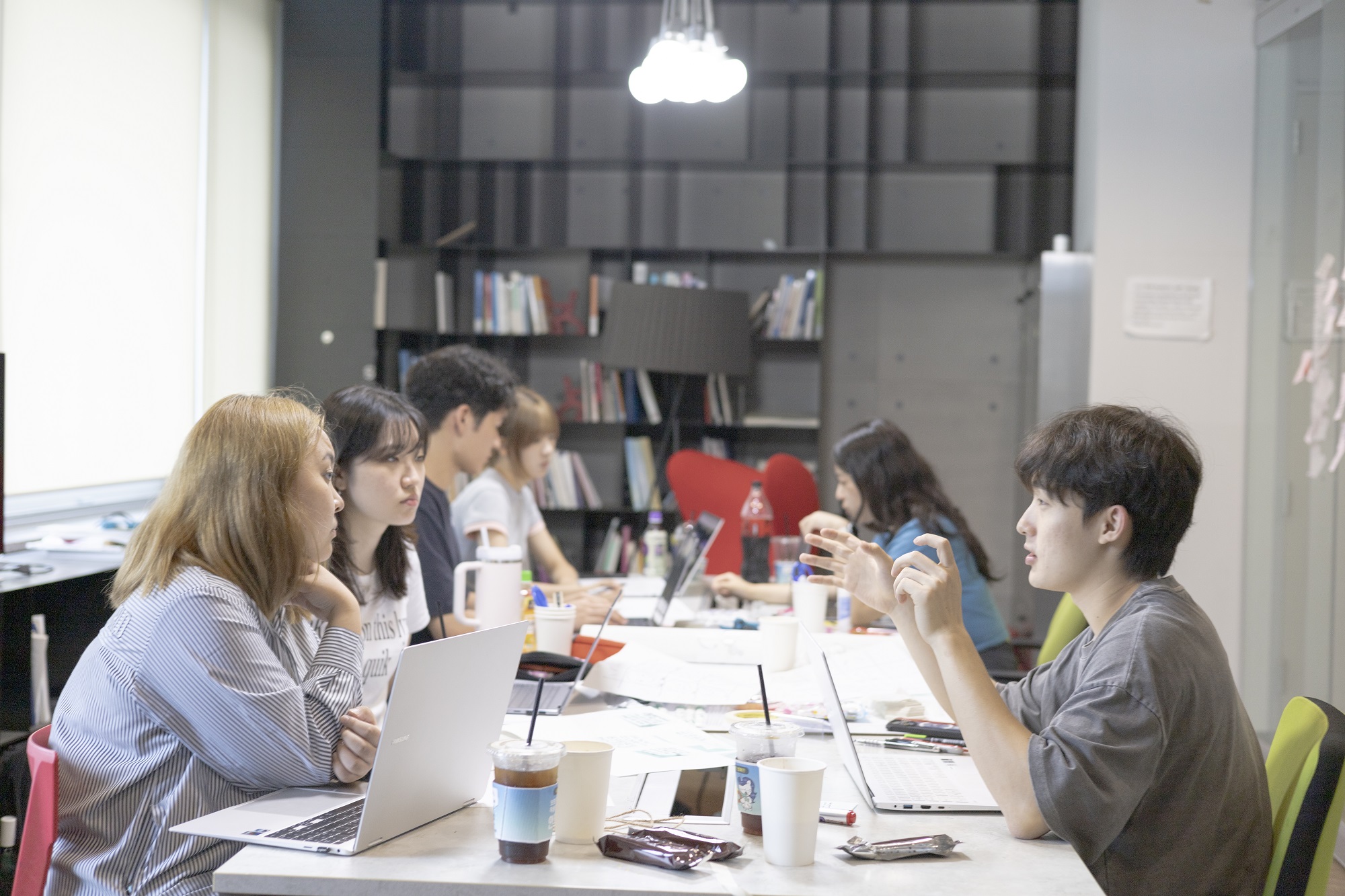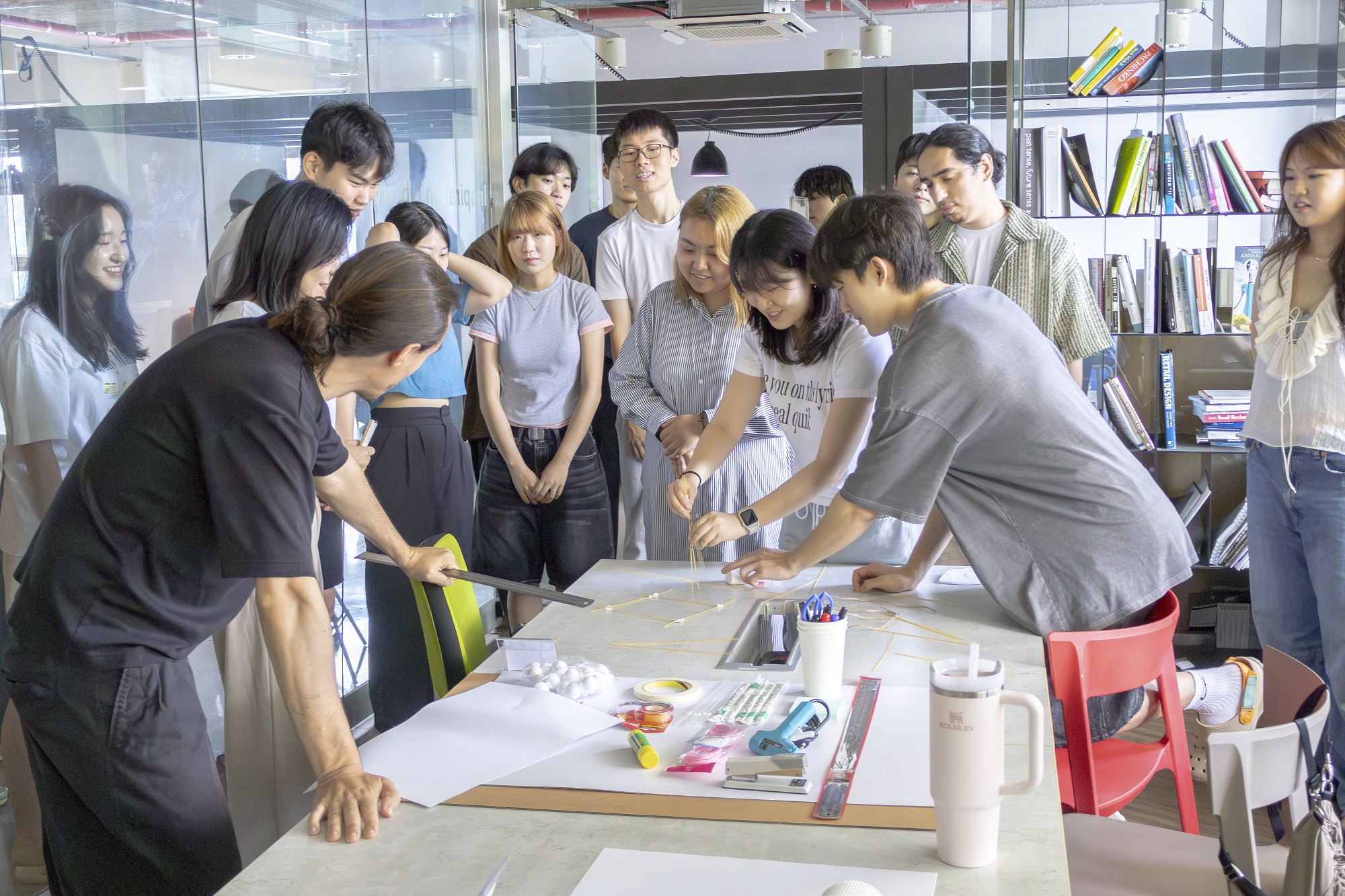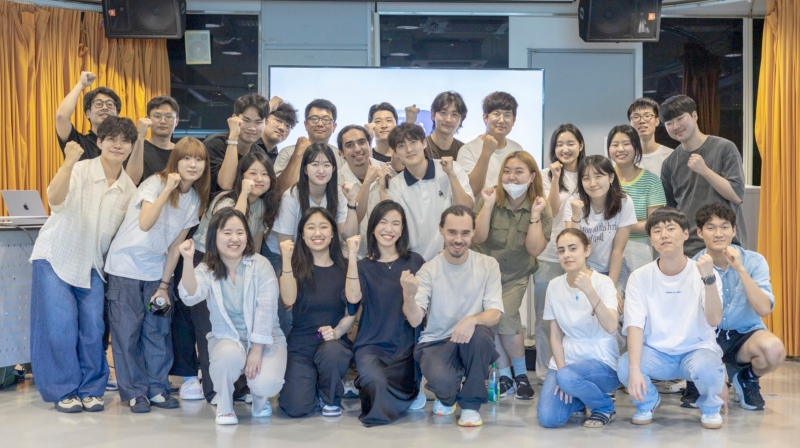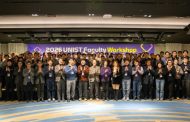The Design Department at UNIST recently hosted a workshop in collaboration with the Design-Led X (DLX) Design Lab at the Institute of Industrial Science, University of Tokyo, centered on the theme “Ubiquitous Navigation / Beyond 5G.” This initiative aimed to develop forward-thinking mobility design concepts by leveraging the combined educational and research expertise of both institutions.
During the three-day workshop titled, “How Future Mobility Will Evolve with 6G Technology,” Director Federico Truccia of the DLX Design Lab and Yssane Yeo engaged 30 UNIST students in envisioning the transformative possibilities that 6G technology offers for the future.

Participants at the workshop delved into the potential of 6G technology to advance mobility solutions. l Image Credit: Department of Design, UNIST
Participants delved into the potential of 6G technology to advance mobility solutions, concentrating on innovative applications that can be realized in real life. Through creative brainstorming, they generated ten unique ideas, one of which will be developed into a prototype at the University of Tokyo.
Graduate students Bertha Barrera and DaBin Lee from the Department of Design at UNIST expressed their enthusiasm, stating, “This workshop allowed us to gain invaluable hands-on experience in concept design, considering both 6G technology and ubiquitous systems.” They further noted, “We also learned crucial delivery processes in design through prototyping and presentations.”

Some of the ideas generated during the workshop will be developed into a prototype at the University of Tokyo. l Image Credit: Department of Design, UNIST
Eun-ho Kim, a student from the School of New UNISTars, remarked, “The workshop provided me with an opportunity to engage in design concept development and collaboration. I learned the vital importance of clearly communicating ideas throughout the process.”
The DLX Design Lab aims to bridge the gap between cutting-edge scientific research at the University of Tokyo and everyday life. With a team of over 30 design experts from nine different countries, the lab is renowned for its exceptional convergence research capabilities. Since its establishment in 2017, it has successfully completed more than 40 projects and is committed to furthering innovative research through ongoing collaboration with UNIST.















